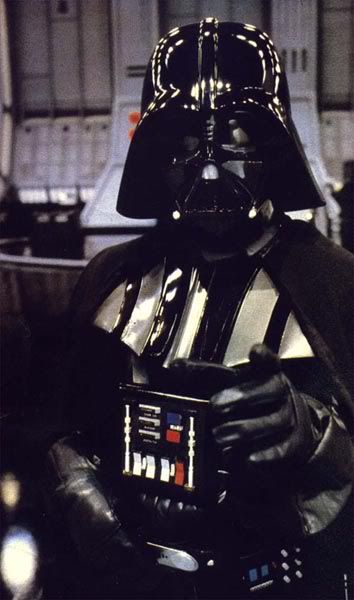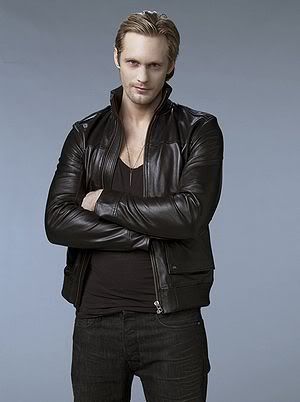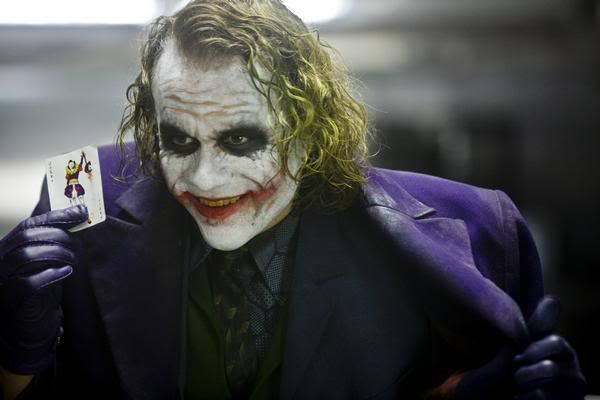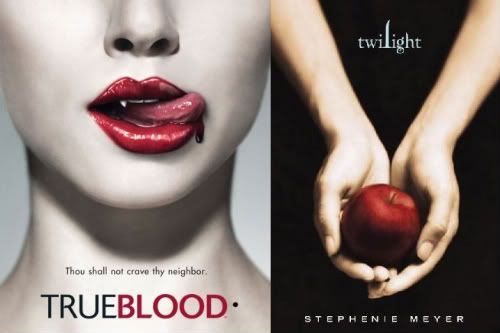
There are lots of stories out there with vampires in, but few keep me coming back for more. I only made it through the first few chapters of Twilight. I haven’t touched anything related to the Cirque du Freak. And as much as I think that the Coppola/Oldman Dracula from 1992 is something of an ur-text for how vampires should be portrayed, I only watch it every couple of years.
True Blood is different. It’s not just the fact that it’s doled out to us episodically or that it’s on HBO, if you know what I mean. I could point to broad things like “scary good writing” or “excellent production values” (the occasional botched special effect aside) but I think there’s more to it. Let’s sink our fangs in a bit deeper.
Realistic Relationships
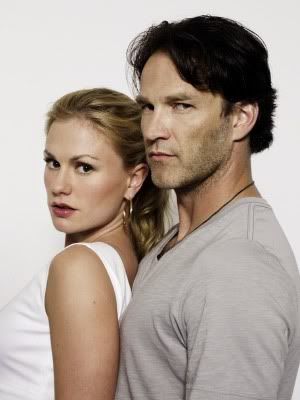
Now, obviously, I’m not referring to a relationship between a vampire and a girl who might be part fairy as ‘realistic’. What I mean is, the way Sookie and Bill deal with one another, the trials they face and the problems that occur strikes me as not only realistic, but mature.
These are two individuals who care very deeply for one another. And unlike some of the other manifestations of such a relationship that are out there, these two not only go to great lengths in an attempt to secure each others’ happiness, they also communicate their feelings to one another to the best of their ability. Sometimes the words come out all wrong, and sometimes Bill loses his mind from starvation and nearly kills Sookie, but this leads me to the thing that really underscores the power of this relationship.
They want to work together to make the relationship a lasting one, because they love each other that much. Even when Sookie is so mad at Bill she could spit nails, to the point of pushing him away, it’s clear she still feels every bit as intensely now as she did when she first met him. And Bill would step aside to let Sookie be with someone who could give her children and not drag her into the blood-drenched world of his kind, because he loves her deeply and cares more about her happiness than just about anything else. It’s a nuanced and well-developed relationship that continues to be realistic in its portrayal of those in the real world, rather than becoming a parody or worse, some form of moralizing. I’m looking at you, Ms. Meyer.
Positive, Deep Characters
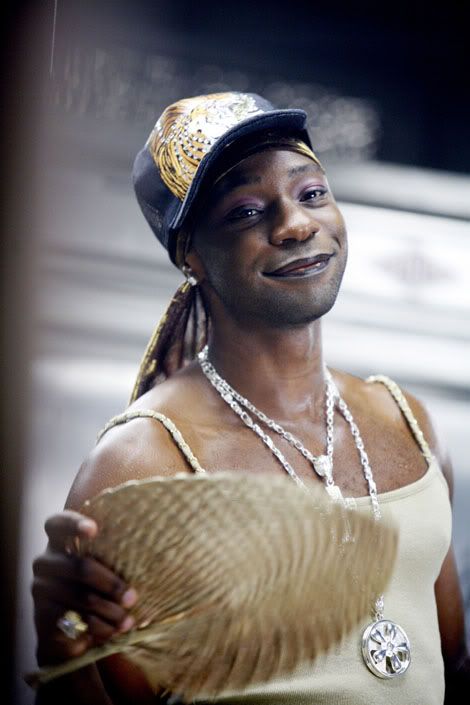
Let’s face it. “God hates fangs” is one letter away from being a very real and very disturbing messages some churches love to propagate. True Blood is something of an Aesop (albeit a broken one) for many minorities that are discriminated against. A lot of fiction out there prefers to play this discrimination or stereotype for laughs rather than give us a positive view of what these people are really like. For example, while there is some good stuff in The Birdcage, for the most part it’s a madcap comedy. True Blood went in a different direction than comedic representation from the very first episode, with Lafayette.
In the Southern Vampire Diaries, Lafayette’s something of a minor character. In the television series, he’s come to play a pretty important role in the goings-on. He’s unashamed of who he is, unafraid to put a few extra touches on himself to look gorgeous and definitely willing to throw punches at folk who have a problem with him being who he is. Now, the fact that he’s a drug dealer and occasionally puts on webcam shows of himself aren’t terribly positive aspects of the character, but he’s made it clear that he cares more about the people in his life – his cousin Tara, Sookie, his mother, etc – than any cash he might make. He’s a pretty stand-up guy, when you get right down to it, and he’s always around to talk sense into folk when they’re being dumb.
Most of the characters show this sort of depth, but… not all of them are positive.
Compelling Villains
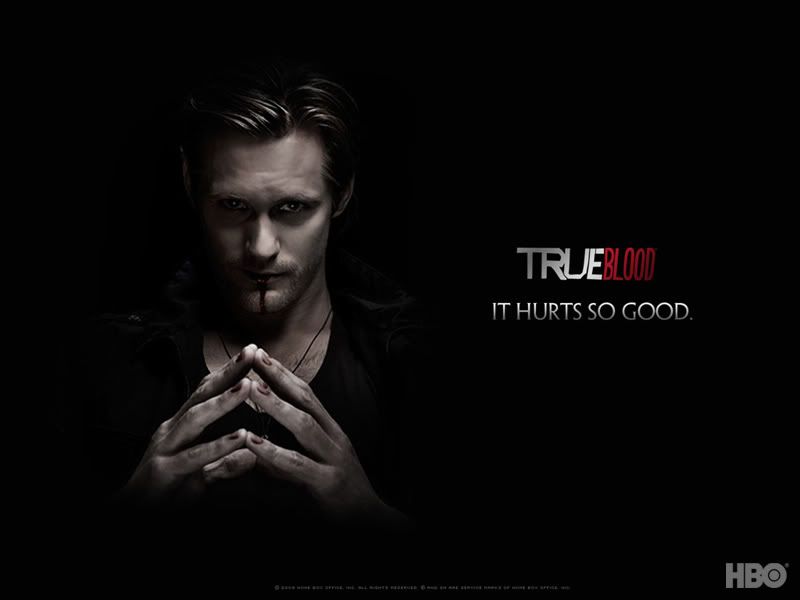
With the likes of Eric and Russell Edgington running around, it’s clear that True Blood isn’t interested in making their villains one-dimensional cackling characters in the mold of Snidely Whiplash. As the show progresses, the raising of the stakes comes with more interesting and difficult to predict antagonists. Neither of the affecting forces in the second season, Maryann or the Fellowship of the Sun, can really hold a candle to Russell Edgington. What will it mean, I wonder, if Eric actually manages to take Russell down? Will that make Eric, by default, the biggest vampire bad on the block?
It’s not even clear if Eric is a villain, per se. While he was clearly started as something of an antagonist towards Bill and Sookie’s idea of a quiet life together, he’s shifted into more of a gray area. He’s a bastard, sure, and manipulates people around him without much thought outside of himself most of the time. But he does care about things – Godric, Pam, avenging his mortal family who’ve been dead over a thousand years – and more than once shows that under the quiet, confident smirks and deadpan remarks is a character every bit as deep and complex as the protagonists. Whichever side of the fence Eric ends up on, be it that of our heroes or that of himself first and foremost, I’m definitely a fan.
Those are just a few reasons True Blood works as a tale with vampires in, and why people like me are tuning in every week. Of course, having vampires that look like this doesn’t hurt, either:
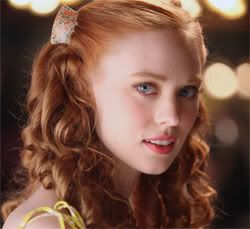
Unfortunately I won’t be able to see tonight’s episode until around Wednesday. Hopefully I can avoid spoilers, but I am dying to know what happens after Mr. Edgington’s little telecast.

